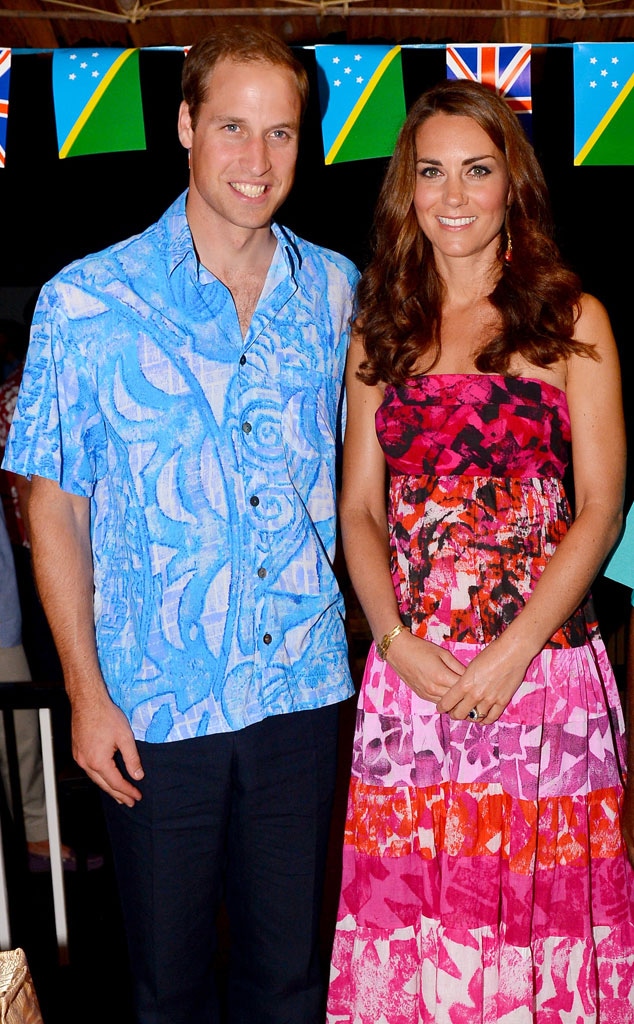 WILLIAM WEST/AFP/Getty Images
WILLIAM WEST/AFP/Getty ImagesMuch is being made at this hour about twins in the royal family. After all, the poor mother-to-be Kate Middleton has been struck with a condition called hyperemesis gravadarum. Also known as extreme morning sickness, it can—can—indicate twins.
That, plus there have been some twins in both Kate's and Prince William's families.
So, for the sake of this column, let's say that's the case. Let's say there are two royal babies born unto Middleton and her prince.
Here's how it's gonna go down:
First, you should know this:
If Kate bears twins, it'll be a first, in a way, for the Mountbatten-Windsor clan. Yes, both families have some twins: William's maternal uncle Charles has identical twin daughters, and Diana's grandfather Lord Fermoy was an identical twin. Kate's paternal grandmother was a twin, too, yadda yadda.
"It doesn't really change anything," royalty expert and ABC contributor Victoria Arbiter tells E! News (her father was a press secretary to Queen Elizabeth II). "All it really means in one fail-swoop we would have provided the nation with an heir and a spare. So job done really!"
Indeed, but never before have twins been within cricket-batting distance of the British throne. Ever.
Now: According to British law, the first-born of an heir to the throne gets the golden ticket, regardless of gender. (The law used to favor only boys, but that changed last year.)
If the birth is a live birth, whichever kid naturally pops out first is our grand prize winner. But, as some reports have been pointing out, Kate could need a Caesarian. If that's so, her doctor could—could—end up deciding the royal succession. Or the position of the kids at the time of delivery could. Or any number of other factors could decide this thing.
"Any doctor knows their No. 1 concern is the health and well being of the mother and the baby," Arbiter assures us. "They wouldn't be picking which baby to pull out first. They are picking the baby that needs to come out first in order to get the other baby out. So, it doesn't change things."
All this said, let's not go crazy with scenarios just yet.
Yes, it is statistically likely that the royal fetus or fetuses will wear a crown. But British royals, particularly in more recent generations, tend to live quite a long time. Queen Victoria reigned for 25 years. Queen Elizabeth II just celebrated her Diamond Jubilee marking—wait for it—60 years on the throne.
Prince Charles, Liz's heir, is already 64. Think about how long he's been waiting for the crown. Suppose, just suppose, that Liz II dies this year, at 86. We'll use that as a benchmark.
For the sake of argument, if Charles also dies at 86, he will have reigned for 22 years. By the time William is crowned, that man will be 52, and his totally theoretical twins will be 22. So if he reigns until he's 86, another 34 years, whichever twin gets pulled out first will then get to sit on the throne at the age of 56.
In the year 2069.
In other words, yes, the twins would be in line for the throne, but, barring tragedy, the world will be waiting for the first-born's coronation for a very, very long time.
—Additional reporting by Baker Machado